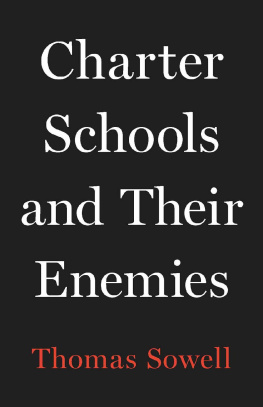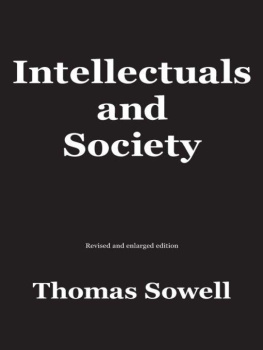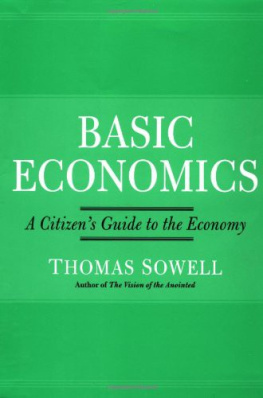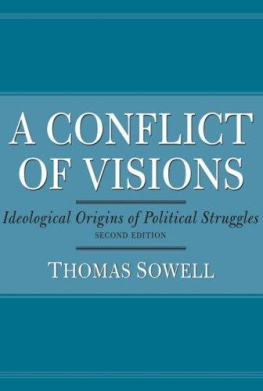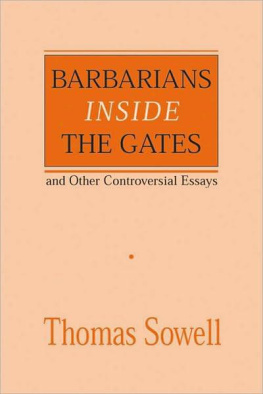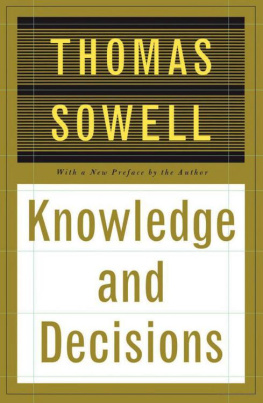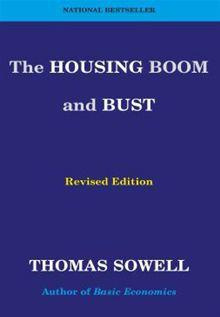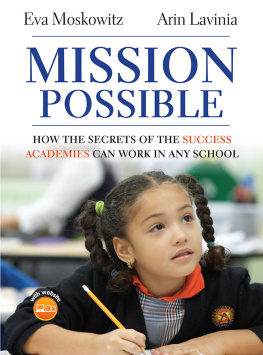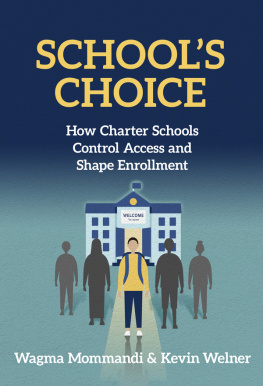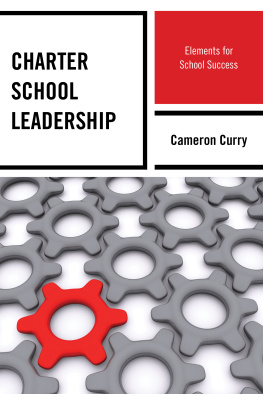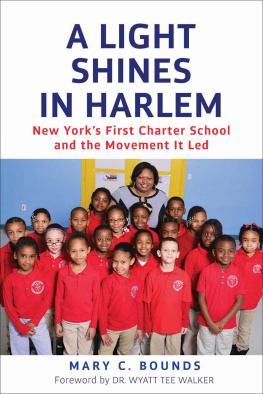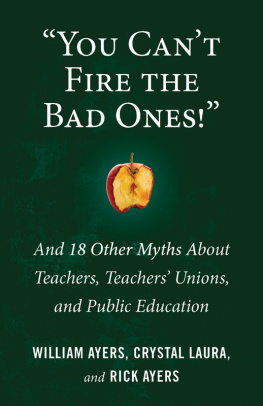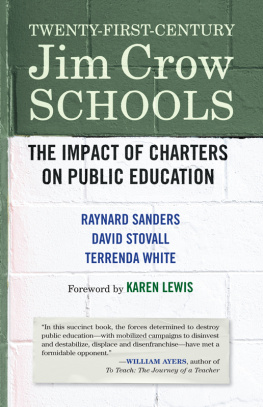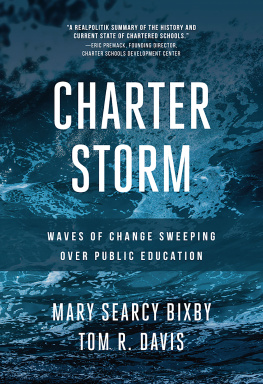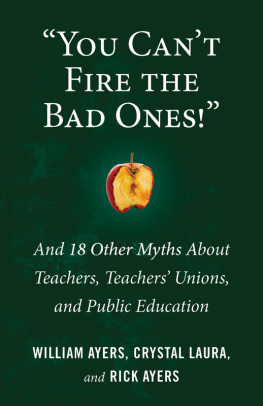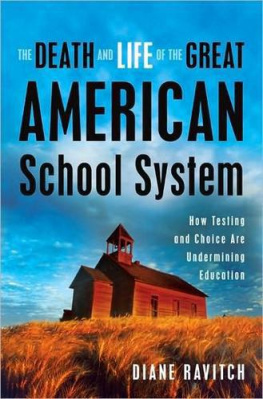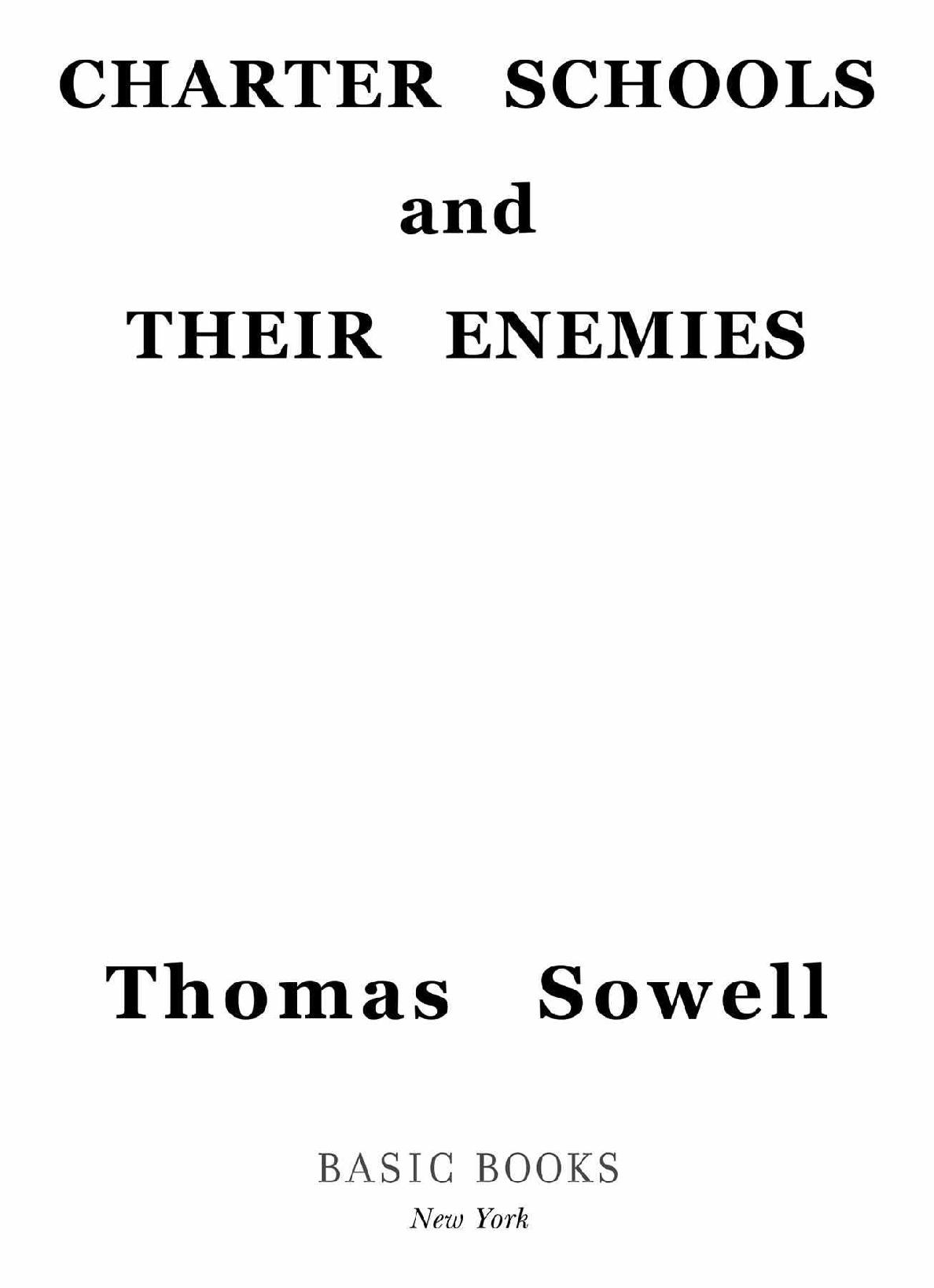Basic Economics
Discrimination and Disparities
A Conflict of Visions
Intellectuals and Society
Copyright 2020 by Thomas Sowell
Cover copyright 2020 Hachette Book Group, Inc.
Hachette Book Group supports the right to free expression and the value of copyright. The purpose of copyright is to encourage writers and artists to produce the creative works that enrich our culture.
The scanning, uploading, and distribution of this book without permission is a theft of the authors intellectual property. If you would like permission to use material from the book (other than for review purposes), please contact permissions@hbgusa.com. Thank you for your support of the authors rights.
Basic Books
Hachette Book Group
1290 Avenue of the Americas, New York, NY 10104
www.basicbooks.com
Originally published in hardcover and ebook by Basic Books in June 2020
First Edition: June 2020
Published by Basic Books, an imprint of Perseus Books, LLC, a subsidiary of Hachette Book Group, Inc. The Basic Books name and logo is a trademark of the Hachette Book Group.
The Hachette Speakers Bureau provides a wide range of authors for speaking events. To find out more, go to www.hachettespeakersbureau.com or call (866) 376-6591.
The publisher is not responsible for websites (or their content) that are not owned by the publisher.
Library of Congress Control Number: 2020936857
ISBNs: 978-1-5416-7513-1 (hardcover), 978-1-5416-7514-8 (ebook)
E3-20200710-JV-NF-ORI
CONTENTS
To those children whose futures hang in the balance
I n a sense, this story began back in the early 1970s, at a gathering of various conservative and neoconservative intellectuals, hosted by Irving Kristol, then editor of a high-quality quarterly publication called The Public Interest .
After a round of convivial recollections from those present about how we had begun our careers on the political left or, as in my case, the far left as a Marxist, Irving raised a very serious question about how some way could be found to improve the substandard educational levels of most black schoolchildren. At that point I said something like, You are talking as if good education for black children is something that has never happened before, and that has to be created from scratch.
This immediately caught his attention, and he asked me to tell him where this had happened, and how. I gave him a brief sketch of the history of all-black Dunbar High School in Washington, D.C., during the era from 1870 to 1955, and the various achievements of its graduates in elite colleges during that era, as well as in careers that led many of them to pioneer as the first black federal judge, the first black general, and the first black Cabinet member, among other distinctions.
His interest very much aroused, Irving urged me to research and write about this, and volunteered to finance the research. Out of this came an article titled, Black Excellence: The Case of Dunbar High School, which appeared in the Spring 1974 issue of The Public Interest. Two years later, I wrote another article for The Public Interest about a number of successful black schools, in various parts of the country, titled Patterns of Black Excellence.
If I thought that, amid all the research and writings about failing black schools, many scholars and policy-makers would be interested in black schools that succeeded, I was sadly mistaken. Many scholars and policy-makers already had their own explanations for the failures of black schools, and their own solutions for that problem. What I had written was, to them, at best a passing distraction, if not something that needed to be discredited, so that they could get on with promoting their own prescriptions, policies and programs.
Chief Justice Earl Warren had already declared racially separate schools to be inherently unequal in the Supreme Courts landmark Brown v. Board of Education decision in 1954, so racial segregation was the prevailing explanation of substandard black educational achievements.
The fact that all-black Dunbar High School was only about a mile away from the Supreme Court where the Chief Justice made his historic pronouncement, and that Dunbar, at that time, sent a higher proportion of its graduates on to college than any white public high school in the city, was a fact that was probably unknown to those crusading for racial integration in the schools, and that fact probably would not have made any difference to them, even if they had known it.
Many people had already made up their minds, and did not want to be confused by facts. Years of mandatory busing of black children to white schools, in order to achieve racial integration was the logical corollary of what Chief Justice Warren had said, though the Brown v. Board of Education decision did not itself prescribe mandatory busing. The busing crusade produced heated controversies, bitter racial polarization and dangerous confrontations in the streets, with schoolchildren caught in the middle of it allbut little, if any, net benefit to the educational levels of black children.
Eventually, the busing crusade faded in futility. But something very different later appeared on the horizonthe idea that low-income parents should be allowed to choose where their children went to school, just as high-income parents already could, by sending their children to private schools if the local public school was unsatisfactory. Extending choice to parents in general could be done in a variety of ways, including vouchers that could cover tuition at low-cost, private schools such as some Catholic parochial schools.
That was just one option among many. There were also magnet schools, homeschooling and tuition tax credits, for example. Eventually, one of the most strikingly successful kinds of schools that emerged from this experimentation was the charter schoola special public school freed from some of the rigidities of the regular public schools, and allowed to receive government financial support only so long as its students educational outcomes met various educational criteria.
Not all charter schools turned out to be successful, just as not all traditional public schools turned out to be successfulor all failures, for that matter. But particular charter schools, and especially some particular networks of charter schools, located in low-income black and Hispanic neighborhoods, achieved educational results not only far above the levels achieved by most public schools in those neighborhoods, but sometimes even higher educational results than those in most schools located in affluent white neighborhoods.
No one expected that. Anyone who might have predicted such an outcome beforehand would have been considered to be hopelessly unrealistic.
This story might seem to have had a happy endingat least for that fraction of minority students attending successful charter schools. But, in fact, even the most successful charter schools have been bitterly attacked by teachers unions, by politicians, by the civil rights establishment and assorted others. How can success be so unwelcome? It is apparently not unwelcome to parents of low-income minority students. In New York City alone, there are more than 50,000 children on waiting lists to get into charter schools. Yet New Yorks mayor has announced an end to the expansion of charter schools and threatened restrictions on those already functioning. It is much the same story in Californiaand in many other places in between.
Understanding why and how educational success has been such unwelcome news to so many people and institutions is the purpose of this book. With growing political threats to charter schools across the country, the stakes could not be higher for poor and minority youngsters, for whom a good education is their biggest opportunity for a better life. That in itself is enough to make this a story well worth understanding by all people of good will, despite whatever other differences they might have.

